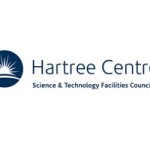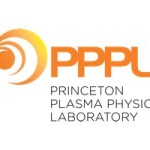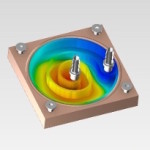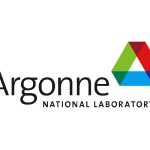A new major collaborative project is set to transform the UK pharmaceutical industry by enabling the manufacturing processes of the innovative medicines of the future to be designed digitally. The STFC Hartree Centre is a partner in the £20.4m ADDoPT (Advanced Digital Design of Pharmaceutical Therapeutics) project, which involves major pharmaceutical companies, Pfizer, GSK, AstraZeneca and Bristol-Myers Squibb.
Archives for January 2016
Shared Memory and MPI 3.0
As multi-socket, then multi-core systems have become the standard, the Message Passing Interface (MPI) has become one of the most popular programming models for applications that can run in parallel using many sockets and cores. Shared memory programming interfaces, such as OpenMP, have allowed developers to take advantage of systems that combine many individual servers and shared memory within the server itself. However, two different programming models have been used at the same time. The MPI 3.0 standard allows for a new MPI interprocess shared memory extension (MPI SHM).
Compute Canada Collaborates on National Research Data Platform
Today Compute Canada and the Canadian Association of Research Libraries (CARL) announced a collaboration to build a scalable national platform for research data management and discovery. The partnership joins information management expertise from the CARL Portage Network with information technology expertise from Compute Canada to develop services that researchers need to respond to the demands of data-intensive research and to comply with funding bodies’ data sharing policies.
The GPUltima: Up to a Petaflop of Networked GPUs in a Single Rack
In this week’s industry Perspective, Katie Garrison of One Stop Systems explains how GPUltima allows HPC professionals to create a highly dense compute platform that delivers a petaflop of performance at greatly reduced cost and space requirements.compute power needed to quickly process the amount of data generated in intensive applications.
Call for Submissions: GPU Hackathon at the University of Delaware
The Call for Submissions is open for the upcoming GPU Programming Hackathon at University of Delaware (UDEL). The event takes place from May 2-6, 2016 at UDEL in Newark, Delaware.
Princeton Plasma Physics Lab Wins 80 Million Processor Hours on Titan Supercomputer
The U.S Department of Energy has awarded a total of 80 million processor hours on Titan supercomputer to an astrophysical project based at the DOE’s Princeton Plasma Physics Laboratory (PPPL). The grants will enable researchers to study the dynamics of magnetic fields in the high-energy density plasmas that lasers create. Such plasmas can closely approximate those that occur in some astrophysical objects.
ANSYS Release 17.0 Provides 10X Performance Improvement
Today ANSYS announced that engineers across disciplines – from structures to fluids to electromagnetics to systems – will realize step-change improvements in the way they develop products using the newly released ANSYS 17.0. This next generation of ANSYS industry-leading engineering simulation solutions set the scene for the next quantum leaps in product development, enabling unprecedented advancements across an array of industry initiatives from smart devices to autonomous vehicles to more energy-efficient machines. The most feature-rich release in the company’s 45-year history, available today, delivers 10x improvements to product development productivity, insight and performance.
Long Live the King – The Complicated Business of Upgrading Legacy HPC Systems
“Upgrading legacy HPC systems relies as much on the requirements of the user base as it does on the budget of the institution buying the system. There is a gamut of technology and deployment methods to choose from, and the picture is further complicated by infrastructure such as cooling equipment, storage, networking – all of which must fit into the available space. However, in most cases it is the requirements of the codes and applications being run on the system that ultimately define choice of architecture when upgrading a legacy system. In the most extreme cases, these requirements can restrict the available technology, effectively locking a HPC center into a single technology, or restricting the application of new architectures because of the added complexity associated with code modernization, or porting existing codes to new technology platforms.”
GPUs & Liquid-Cooling Speed APEXX 5 Advanced Computer Workstation
Apexx5_hero_web_smallToday BOXX Technologies introduced the redesigned APEXX 5, the “world’s most advanced professional workstation.” Built to accommodate demanding engineering, architectural, VFX, and animation workflows, the newly upgraded and highly configurable APEXX 5 is designed to maximize I/O expandability with up to 5 dual-width GPUs with a sync card, a single-width GPU, or any combination of seven, full-length expansion cards while reaching new levels of rendering and simulation performance.
Apply Now for Argonne Training Program on Extreme-Scale Computing
Computational scientists now have the opportunity to apply for the upcoming Argonne Training Program on Extreme-Scale Computing (ATPESC), to take place from July 31-August 12, 2016. “With the challenges posed by the architecture and software environments of today’s most powerful supercomputers, and even greater complexity on the horizon from next-generation and exascale systems, there is a critical need for specialized, in-depth training for the computational scientists poised to facilitate breakthrough science and engineering using these amazing resources. This program provides intensive hands-on training on the key skills, approaches and tools to design, implement, and execute computational science and engineering applications on current supercomputers and the HPC systems of the future. As a bridge to that future, this two-week program to be held at the Pheasant Run Resort in suburban Chicago fills many gaps that exist in the training computational scientists typically receive through formal education or shorter courses.”













